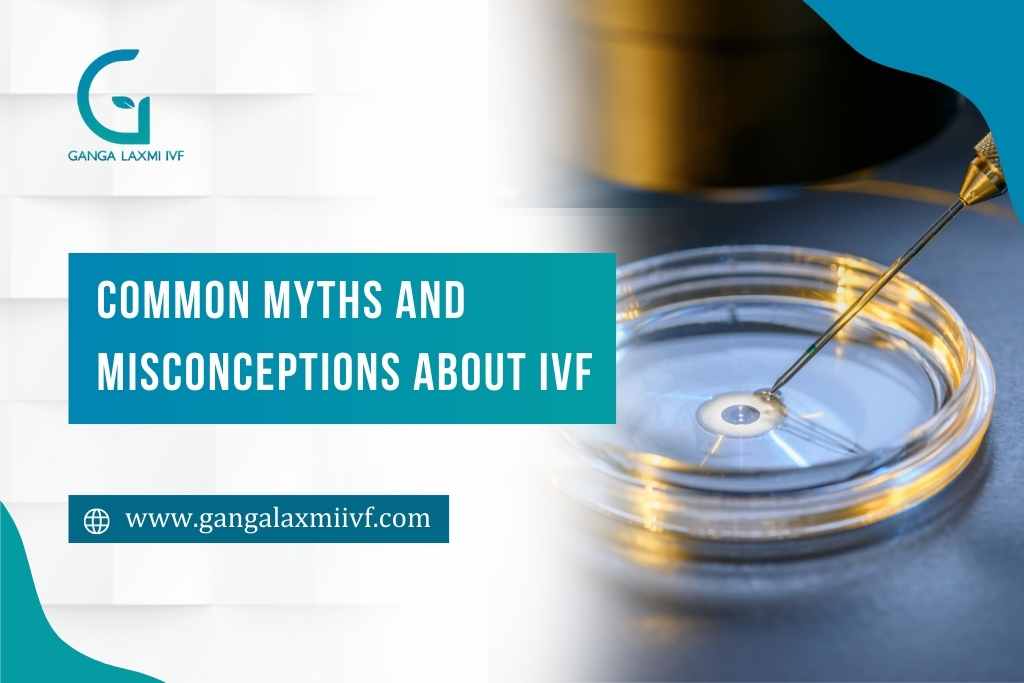In Vitro Fertilization (IVF) is a group of well-established fertility procedures that have helped millions of couples conceive, who were facing difficulty in getting pregnant naturally. Despite these scientific miracles, a lot of myths have captured the attention and minds of people, which are haunting them and preventing them from taking an IVF treatment.
This blog will clear out all the myths that have caused unnecessary fear and misconception in people’s minds that have been giving people anxiety and fear from considering IVF as a viable option.
Top 10 Common Myths and Misconceptions About IVF
Myth 1: IVF Always Works on the First Try
Reality: IVF never guarantees that it will turn out to be successful in the first attempt. Several factors highly affect the success rates of IVF, which include age, the underlying cause of infertility, and overall health. Women above the age of 35 face infertility issues in which the percentage of IVF success is around 40%. But the percentage of success rates goes on decreasing as the age increases. So even if a woman went through an IVF procedure, but her age doesn’t support fertility, the IVF will not be successful.
Myth 2: IVF Is Only for Women with Infertility Issues
Reality: No, IVF is not only for women having fertility issues. IVF is commonly used to treat female infertility but it can also treat male infertility and other reproductive challenges. Couples having reproductive issues such as unexplained infertility, low sperm count, poor male infertility, genetic disorders, and multiple miscarriages can conceive a child through an IVF procedure. Additionally, same-sex couples and single individuals who wish to become parents can also take the support of IVF to experience parenthood.
Myth 3: IVF Babies Are Different from Naturally Conceived Babies
Reality: IVF babies are the same as those babies born through a natural pregnancy. The difference is just present in their names and the babies born through IVF procedures are known as test tube babies. Test tube babies’ development and nourishment are the same as that of normal babies from the very beginning. The primary difference lies in the method of conception, which does not affect the child’s overall health and well-being.
Myth 4: IVF Is Only for Young Women
Reality: IVF is especially for those women who couldn’t get pregnant at the right age or young age because of certain factors. Though the success rates of IVF are high in young women it does not mean that older women cannot consider IVF procedures to experience motherhood. Thanks to various advancements that have improved the success rate for older women. Each case is unique and has to be treated differently, hence personalized treatment is what older women can choose for.
Myth 5: IVF Causes Multiple Pregnancies
Reality: Yes it is true that in some cases women can have multiple pregnancies from IVF. Multiple pregnancy is a condition where a woman becomes pregnant with twins or triplets. Fertility specialists take proper care to eliminate this condition by carefully controlling the number of embryos transferred. Multiple embryos are transferred only when the success rate of infertility is very low, otherwise, single embryos are mostly transferred in many women.
Myth 6: IVF is an Unnatural Process
Reality: Except for some procedures, the whole process of IVF is natural. It’s just that IVF mimics the natural process of conception outside the body. The main purpose of IVF is to create the same environment where an embryo can develop and then implant in the uterus for a healthy pregnancy.
Myth 8: Lifestyle and Diet Do Not Affect IVF Success
Reality: One of the major factors of unsuccessful IVF rates are lifestyle factors and dietary habits. Lifestyle and diet play a major role in the success rate of IVF If you have a healthy lifestyle with a good diet plan then the success rate of IVF will itself increase. But if you indulge in smoking and consuming alcohol, and do not have a proper diet plan, and usually eat junk food can be unsuccessful
Myth 9: IVF Is the Only Fertility Treatment Available
Reality: IVF is one of the most common fertility treatments among other assisted reproductive technologies (ART). Looking at the patient’s health and requirements, certain fertility treatment is prescribed by the doctors. Other than IVF, IUI, ICSI, surrogacy, and donor, are some of the other fertility treatments that have also given successful results to the patients.
Myth 10: IVF Guarantees a Healthy Baby
Reality: IVF increases the chances of pregnancy and also helps in delivering a healthy baby, but only when all the factors effective have been taken care of and all the protective measures have been taken. Doctors and fertility specialists make sure that every procedure is performed well without leaving any chance of fertility. But sometimes in some exceptional cases, it is possible that because of genetics or an injury after the IVF procedure, the baby’s health gets affected and leads to a defective child.
Conclusion
There is no point in embarrassment or shame if you are looking forward to seeking the IVF process to become a parent. But before making a decision it is crucial to attain full knowledge about the process from your doctors. Don’t keep myths in your mind and move forward with them. It is essential to debunk all the myths and reduce your stress and anxiety developing from this misinformation.


